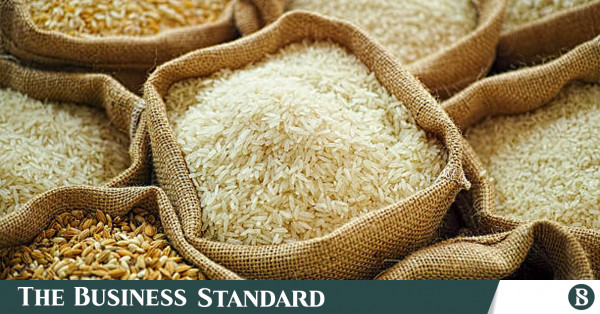Prices of ration rice, wheat for army, police rise 800% – after 33 years


The prices of rice and wheat, distributed as ration items at subsidised rates to officers and employees of 10 government institutions including the Bangladesh Police and the Armed Forces, have been increased up to 800%.
Effective from 1 July this year, the finance ministry has set the price of ration rice at Tk11 per kg and wheat at Tk12 per kg, based on 20% of their economic value. The current ration prices range from Tk1.09 to Tk1.80 per kg, depending on the institution.
According to a circular signed by Finance Division (Budget) Deputy Secretary Noor Uddin Al Faruk, the selling price of rice and wheat will be set at 20% of their determined economic value for the respective fiscal year.
The last adjustment to ration product prices took place in 1991, with specific rates set for each item.
When queried about the economic prices for the upcoming fiscal year, finance department officials were unable to provide detailed information. However, it has been calculated that rice and wheat are valued at Tk55,000 and Tk60,000 per tonne respectively. In the current fiscal year, the economic values were Tk51,894.589 per tonne for rice and Tk47,302.140 per tonne for wheat.
Furthermore, Finance Division officials could not confirm whether prices for sugar, lentils, and soybeans distributed in rations would increase.
At present, various levels of officials and employees of 10 government institutions are getting ration facilities. Those are – Special Security Force (SSF), Directorate of National Security Intelligence (NSI), the Armed Forces division (Army, Navy, and Air Force), Bangladesh Police, Border Guard Bangladesh (BGB), Directorate of Ansar and Village Defense Party, Anti-Corruption Commission, Prisons Directorate, Department of Fire Service and Civil Defense and Department of Narcotics Control.
A family of four members gets 35kg of rice and 30kg of wheat per month at Tk1.09 to Tk1.80. Besides, 5kg of sugar is available for Tk3 per kg, 8kg of lentils for Tk1.20, and 8 litres of soybean oil for Tk2.30. Bangladesh Police currently get rice and wheat at Tk1.20 per kg.
Finance Division officials said currently, the prices of ration rice and wheat do not exceed Tk2 per kg. Employees of various institutions enjoy lifetime ration benefits.
The government purchases these products at market prices, either domestically or through imports, and distributes them as rations. This requires a substantial annual subsidy. Increasing the price of ration rice and wheat will help reduce the subsidy burden.
In the budget for the next fiscal year, Tk7,360 crore has been allocated for food subsidies.
Policy Research Institute Executive Director Ahsan H Mansur praised the initiative to increase the price of ration rice and wheat, calling it a “very good and timely decision.”
Mansur suggested that the prices of all ration products should be gradually increased and adjusted further, advocating for the complete phasing out of the ration subsidy.
“All benefits for government employees should be limited to their salary and pension,” he also opined.
During AHM Ershad’s tenure in 1982-83, Bangladesh first ever introduced ration facilities for members of the armed forces. Later, other institutions were included in different phases.




